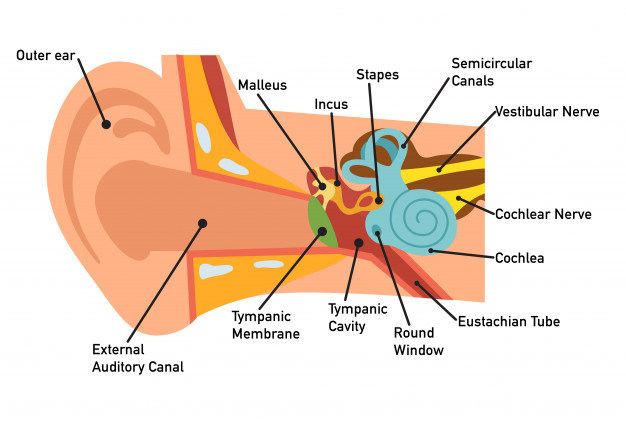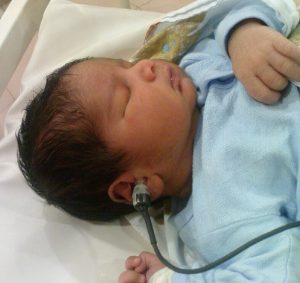Children
(Paediatric ENT) Conditions
- Hearing Loss
- Allergic Rhinitis
- Sinusitis
- Tonsillitis
- Adenoids
- Snoring And Sleep Apnoea
- Otitis Media With Effusion (Glue Ear)
- Speech Delay
- Choanal Atresia
- Noisy Breathing
- Breathing Difficulty
- Laryngomalacia
- Microtia / Ear Malformation
- Nose Bleeds / Epistaxis
- Vocal Cord Palsy
- Foreign Body
- Tracheomalacia
- Subglottic Stenosis
- Hoarseness
- Snoring
- Recurrent Respiratory Papillomatosis
Children
(Paediatric ENT) Procedures
Hearing loss and Deafness in Children
Hearing is one of our five senses. It gives access to sounds in the world. Deafness (or hearing loss) in a child needs IMMEDIATE ATTENTION. This is because communication and language skills develop rapidly in childhood, particularly before the age of 3. If hearing loss goes undetected in children, it increases the chance of delayed development of these skills.
We at Adventis ENT & Cochlear Implant Clinic understand the importance of early detection, thereby, provide specialized treatment for deafness or hearing loss in children. Early intervention of hearing loss means that treatment can start early as well as facilitate children to develop listening communication and language skills.
We work closely with the Paediatric Audiologists and Speech Therapists from our partner team of SpHear Speech and Hearing Clinics.
What is Children’s Hearing Loss or Deafness?
Hearing loss and Deafness in children is a condition when one or more parts of the ear do not function effectively. Many people term this as ‘hearing impairment’ or ‘hard of hearing’. It is useful to understand how the ear works.

The ear is made up of three parts: Outer, Middle and Inner
OUTER
The outer ear consists of the pinna and the ear canal. The pinna is your external ear, which captures sound and funnels it into the ear canal.
MIDDLE
The middle ear consists of the ear drum membrane and an air – filled cavity containing three small bones called ossicles. The individual ossicles are the hammer (malleus), anvil (incus) and stirrup (stapes) – and they vibrate together when the ear drum moves.
INNER
The inner ear consists of a complicated series of the channel and chambers. For hearing, the important organ is the spiral shaped cochlea Roughly the size of a pea, the cochlea contains fluid and about 15,000 tiny hair cells. Each hair cell is connected to the auditory nerve.
How do we hear?
- Sound waves a guided down your ear canal by the pinna.
- The sound waves hit your ear drum and it vibrates.
- The small ossicles vibrate with the ear drum, transferring the sound across the middle ear to the cochlea.
- The fluid inside the cochlea picks up the vibrations and carries them to the thousands of tiny hair cells. These hair cells change the movement into electrical impulses which are sent along the auditory nerve to the brain. The hearing centre of the brain interprets the impulses as sound.
Types of Hearing Loss
Hearing loss can-
- Happen at birth which is known as ‘Congenital Hearing Loss’
- Start after birth which is known as ‘Acquired Hearing Loss’
Often a child can have no or minimal hearing loss at birth but this gets worse with time. This is known as “Progressive Deafness”
Hearing loss is typically differentiated as a mild, moderate, severe and profound. The type depends on the severity of hearing loss and the child’s ability to hear the various frequencies of sound associated with speech. Hearing loss can occur in one or both ears. Generally, a child who has a hearing loss of more than 90 decibels is considered deaf.
The four types of hearing loss in children are conductive and sensorineural.
- Conductive hearing loss is when the passage of sound is blocked in either the middle ear or ear canal. A child with conductive hearing loss is mostly treatable through medication, hearing aid or surgery.
- Sensorineural hearing loss is caused when the auditory nerve is unable to receive sounds or do not work effectively. A pediatric ENT specialist in hearing loss can help your child treat this type of hearing loss.
- Central hearing loss results from damage in the central auditory pathway or auditory cortex. This means that the cochlea is working effectively but other parts of the brain are not working appropriately.
- Mixed hearing loss is a combination of both conductive and sensorineural hearing loss. This means that problems occur in the outer / middle ear and the inner ear.
There are several reasons why a child might be born with hearing loss or become deaf after childhood. Although knowing the main cause of hearing impaired in children can help to provide the best possible treatment.
Causes of hearing loss in children
- Genetic causes or syndromes can cause permanent hearing loss. Syndromes like Alport Syndrome, Goldenhar Syndrome, Down’s Syndrome and more.
- Perinatal causes: example includes low birth weight, prematurity at birth, severe hyperbilirubinemia, birth asphyxia, and sepsis.
- Congenital infection: TORCH, HIV, maternal drugs, or toxins like cocaine, alcohol etc
- Postnatal causes: Childhood infections examples head injury, meningitis, or encephalitis
- Temporary causes: build-up ear wax, a foreign object stuck in the ear canal, excess mucus, or otitis media (ear infection)
Signs that your baby can hear
- Newborn to 8 weeks age: startles to sudden noise, calms to your voice
- 8 weeks to 4 months: Look towards direction of sound, smiles when spoken, makes cooing noises
- 6 months to 12 months: baby responds to recognise sounds, begins to imitate simple words and sounds, responds to name
- 18 to 24 months: uses small letter words or use simple phrases
- 2 to 3.5 years: baby starts to develop simple vocabulary and understand instructions
Hearing problems in older children
Here are a few warning signs of hearing loss in children and an Indication your baby needs a hearing test:
- Does not respond to sounds or noise
- A decrease in school grades
- Complaining of ear ringing
- Not able to have a conversation with others
- Lack of concentration
- Appear inattentive in class
- Increasing the Volume of TV
Diagnosing Hearing Loss in Newborn Children – Newborn hearing screening

It is possible to perform newborn hearing screening tests. The hearing loss screening test is performed by an audiologist. After the test a result, the Paediatric ENT surgeon and Audiologist decides if the child needs to consult for more detailed hearing evaluations.
We perform several tests to diagnose Hearing loss in children to ensure to understand the child’s level of hearing problem. The test used depends on the child’s age and stage of development.
The hearing specialist of our partner Sphear Speech and Hearing Clinic perform a range of objective and behavioural tests to measure the accurate level of hearing loss.
- An objective test of ear and auditory brain response: Measure electrical stimulus in brain in response to a sound. Eg : ABR / BERA , ASSR ,OAE, Immittance.
- Audiometry test: Its non-invasive, painless hearing test for children to measure the level of sound they hear
Check with our pediatric ENT doctor to find out if your child has hearing loss.
Treatment for hearing loss in children
Early detection of hearing loss is effective in children as it helps them to develop communication and language skills, which experts believe starts during the 1st month of life. If hearing loss diagnosis is done on time then a child can avoid trouble with delay in development of language. Hearing loss can occur due to ear wax buildup. Adventis Clinic stands as the best ENT clinic for ear wax removal. The right treatment for hearing loss in a child depends on the cause and level of severity. The treatment includes:
- Antibiotics or other medication
- Removal of earwax or foreign body
- Hearing aid for mild to moderate hearing loss
- A cochlear implant is considered for children with severe to profound hearing loss
- Speech therapy by our partner SpHear Speech and Hearing Clinic
The earlier you find out about your child’s hearing loss, the sooner they can be treated. Our team of professionals include ENT specialist, audiologist, speech pathologist, cochlear implant surgeon, cocjlear implant specialist, and speech therapist. They bring years of experience to Adventis ENT clinics to help treat your child’s hearing loss or deafness. If your child experiences any of the above symptoms kindly contact the specialists today.

